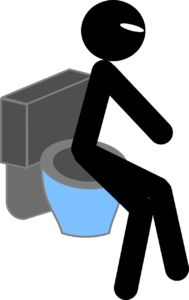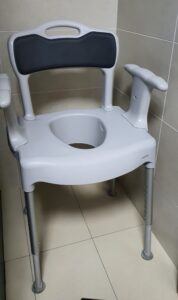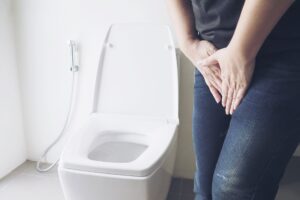 What is this test?
What is this test?
This is a test to assess bladder function and will involve the evaluation of the bladder during the filling, storing and emptying of the urine.
Why is it needed?
This test will provide information about your urinary problems and may help identify the cause. This will also help the doctor in choosing the best therapy for you.
How to prepare for the test?
 You may eat or drink or take your regular prescribed medications prior to the test. The test is performed with a full bladder. There is no need to empty your bladder just before the test unless instructed by the nurse. Inform the nurse if you are unable to hold your full bladder any longer while waiting for your turn. The test can be done even if you are having your period unless it is very heavy on the day of the test. Please discuss this with your doctor. Please be punctual.
You may eat or drink or take your regular prescribed medications prior to the test. The test is performed with a full bladder. There is no need to empty your bladder just before the test unless instructed by the nurse. Inform the nurse if you are unable to hold your full bladder any longer while waiting for your turn. The test can be done even if you are having your period unless it is very heavy on the day of the test. Please discuss this with your doctor. Please be punctual.
How is it done?
The test is done in a private room and your privacy will always be maintained. It will take approximately 30 – 45 minutes. At the start of the procedure, you may be asked to empty your bladder while sitting in a special chair (with a special collecting system for the urine) to measure your urinary flow. Following this, a small catheter is inserted into the bladder. Another catheter is also inserted into the rectum. Both catheters are then connected to a monitor, which can record the pressure within the bladder and rectum. The bladder is then filled with normal saline via the bladder catheter. During filling, you will be asked about bladder sensation and also to perform the cough or straining maneuver to demonstrate urinary leakage. After filling, you will ask to empty your bladder. The two tubes will then be removed and the test is completed. It is not painful but some women may find it a little bit uncomfortable during the test.
The bladder is then filled with normal saline via the bladder catheter. During filling, you will be asked about bladder sensation and also to perform the cough or straining maneuver to demonstrate urinary leakage. After filling, you will ask to empty your bladder. The two tubes will then be removed and the test is completed. It is not painful but some women may find it a little bit uncomfortable during the test.
What to do after the test?
 Following the test, you may drive or return to work. Some women may find passing urine to be slightly uncomfortable and more frequent for 1 to 2 days. You should increase your fluid intake during this period. It is best to avoid drinks containing caffeine as they can aggravate these symptoms. Some women may develop urine infections after the test. Antibiotic is not routinely given before or after the tests.
Following the test, you may drive or return to work. Some women may find passing urine to be slightly uncomfortable and more frequent for 1 to 2 days. You should increase your fluid intake during this period. It is best to avoid drinks containing caffeine as they can aggravate these symptoms. Some women may develop urine infections after the test. Antibiotic is not routinely given before or after the tests.
Consult your doctor immediately if you think you may have a urinary infection or the following symptoms:
- Burning sensation on passing urine for a few days.
- Blood in the urine.
- Fever and/or feeling unwell.
- Lower abdominal or back pain
To print a pdf copy, click HERE
[mailerlite_form form_id=3]


